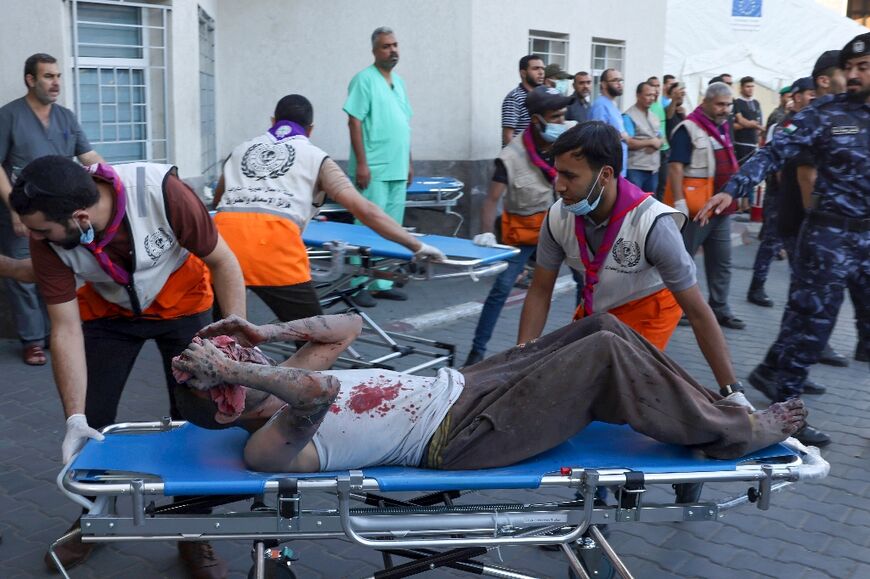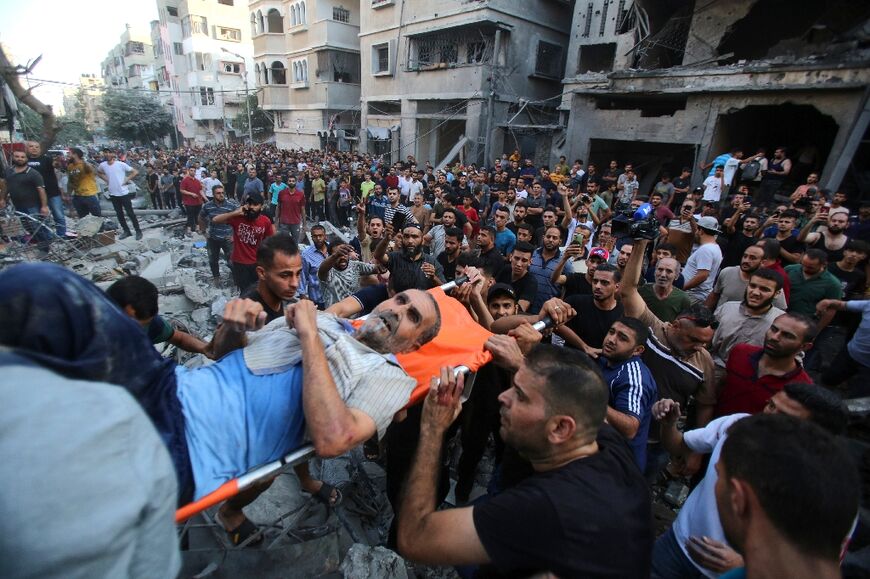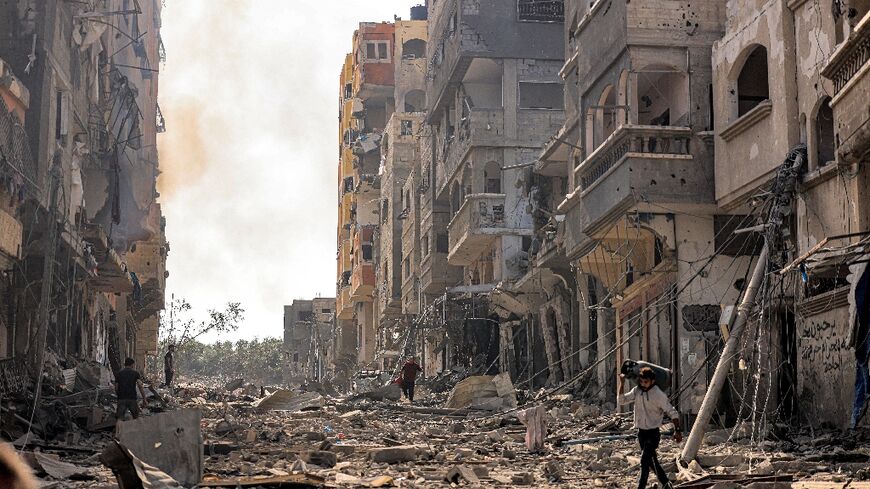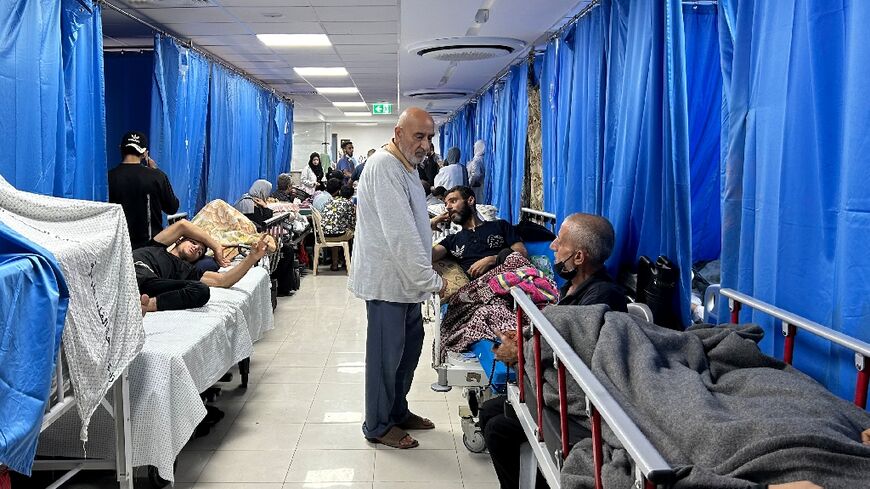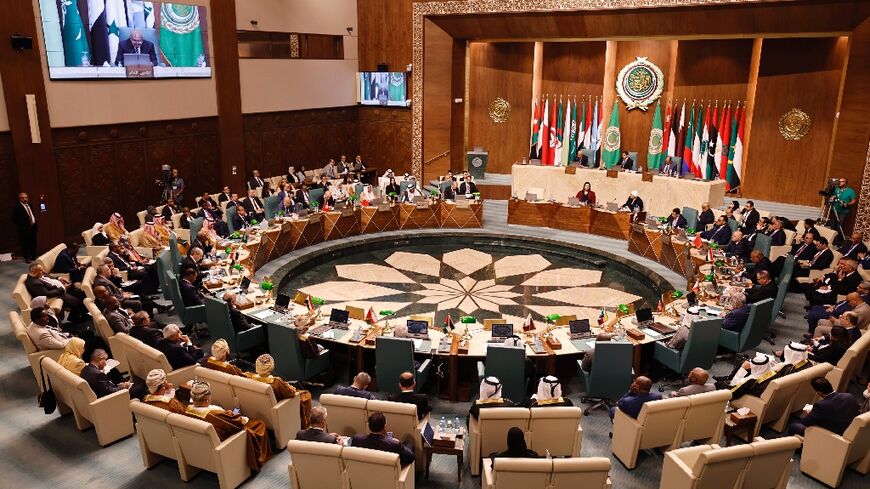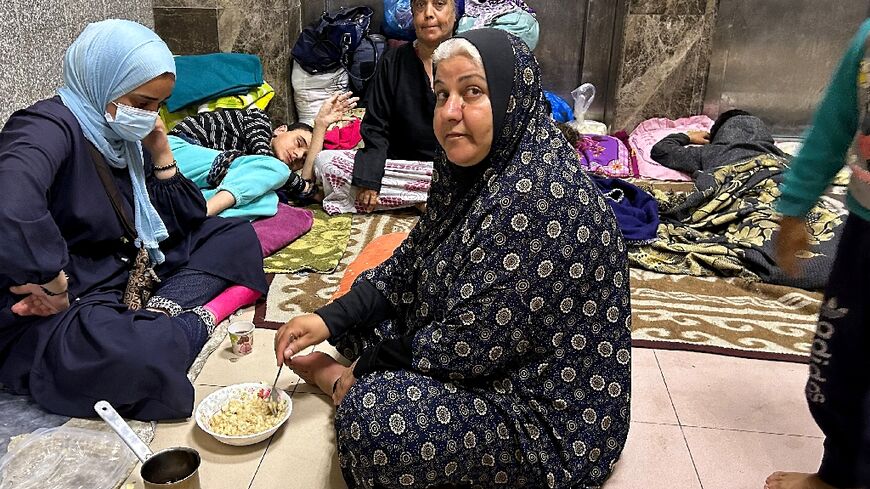Gaza hospitals overwhelmed by air strikes and siege: doctors
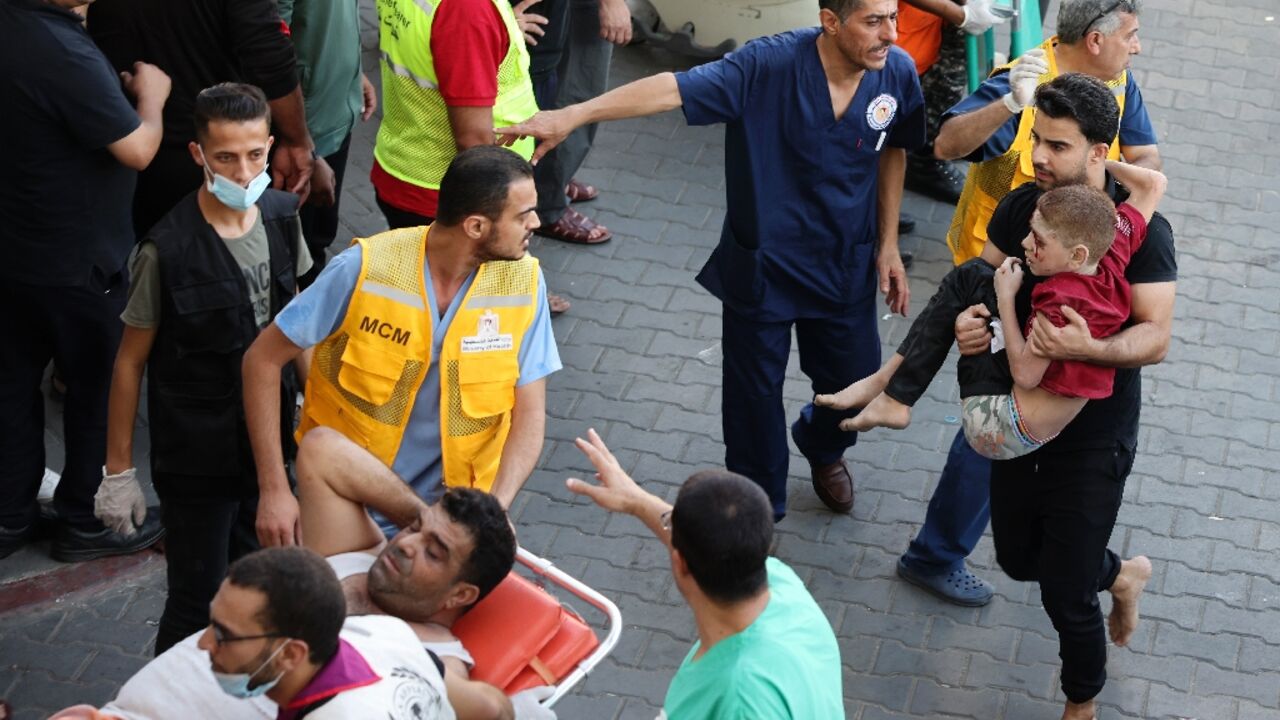
Doctors and nurses at Gaza's overwhelmed Al-Shifa hospital on Tuesday were busy treating hundreds of casualties from Israeli air raids as the Palestinian health ministry warned of a "catastrophic situation".
Akram al-Haddad, 25, was visibly distraught at the bedside of his one-and-a-half-year-old nephew.
The baby, Abd al-Rahman al-Dos, was injured in an air strike that killed 17 people including another relative, a four-year-old boy.
Dos and his parents survived the bombing that destroyed the family's Gaza City home, but the baby required urgent medical intervention, said the doctor treating him.
The doctor, Abdallah, who asked to be identified by his first name only, said that "he needs an emergency surgery for his head injury, but must wait until an operation room is available."
However, a free room might not be enough to save Dos.
- No operating without electricity -
"We need to ensure there's electricity supply and that we have the necessary equipment" before starting any operations, said Abdallah.
"We have a list with many names of wounded patients waiting their turn. Some of them lost their lives due to a lack of resources."
Emergency room doctor Mohammed Ghonim told AFP the medical teams had dealt with "large numbers of casualties, most of them women and children, arriving at the same time".
Medical supplies, including oxygen tanks, were running low in the blockaded coastal enclave , Ghonim said, and "we have an electricity and water crisis".
The doctor was interrupted by the arrival of a new group of wounded; three women, two children, an elderly man and two young men were admitted to the emergency room.
Nearby, a staff member was comforting Umm Rama al-Hassasneh, who was lying on a hospital bed next to her four children, aged three to six, all wounded in an Israeli air strike that hit their Gaza City neighbourhood of Sheikh Ridwan.
The family home was badly damaged when a neighbouring house was targeted by Israeli warplanes, Hassasneh told AFP.
"They bombed the house," she said. "I was injured and the children were injured, and we were taken here. We're waiting to be treated."
The Gaza health ministry has said that 765 people have been killed and 4,000 wounded by Israeli strikes since Saturday.
Israel was retaliating following a Hamas assault in the south of the country in which the militant group killed more than 900 Israelis and foreigners and kidnapped dozens more.
- 'Nowhere else to go' -
The health ministry warned that a shortage of medical supplies and medications would lead to a "catastrophic situation" in the Gaza Strip.
Eight hospitals were "not sufficient to meet the needs" of the Gaza strip, which has a population of 2.3 million, the ministry said.
The Israeli defence minister declared on Monday a "total siege" against the Gaza Strip, with "no electricity, no water, no gas" for the enclave.
The United Nations's human rights chief Volker Turk said on Tuesday that the siege was banned under international law.
The Israeli bombardment has rendered the Beit Hanoun hospital inoperative and damaged Al-Shifa hospital's neonatal unit.
The head of media for the Hamas-led government, Salameh Maarouf, said that "given the great number of wounded," Gaza was facing a shortage of "medication, medicals supplies, scanner and X-rays".
He accused the Israelis of "deliberately creating a miserable humanitarian situation through its restrictions and attacks."
Maarouf said Israel had "warned that if fuel is supplied to the power plant by Egypt, the power plant will be bombed".
In the corridors of Al-Shifa hospital and in its gardens, multiple families had sought refuge.
Having received treatment, many of them at no other choice.
"My home has been completely destroyed. I don't know why. All the houses here have been destroyed," said Abu Ashour Sukayk, 39.
"It was a dark night for my wife, my children and me. We spent the night in the hospital.There was nowhere else to go."


